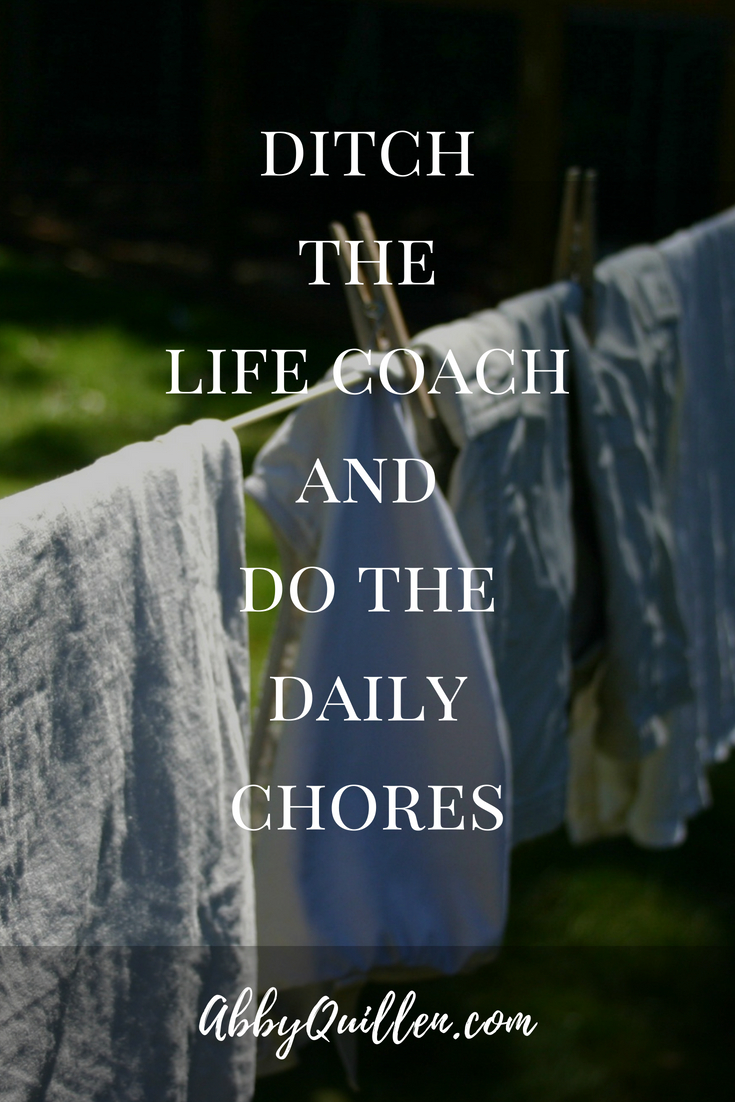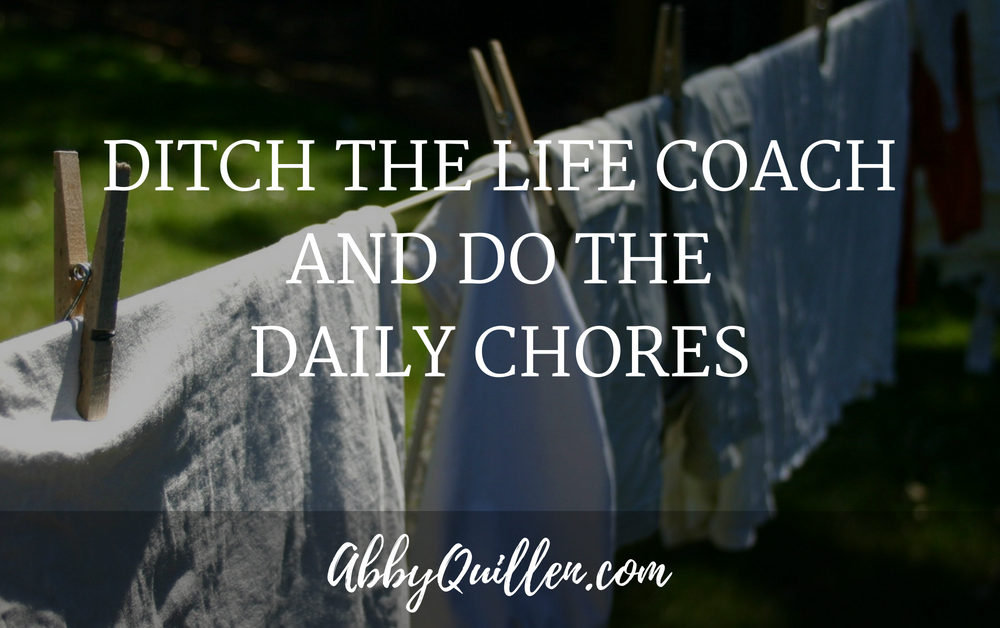When I quit my job to work at home, I was perplexed by the chores that swelled up to fill my every waking moment. “I can be on my feet every second, never stopping, and still the house is a disaster,” another mom lamented to me.
I nodded.
My boys are gifted at making messes. Recently, when I left the room for thirty seconds, they managed to cover every inch of the living room with a couple of board games — tiny tokens and piles of cards and fake money strewn everywhere.
When I first started at this mothering thing, it was tempting to dream about hiring a housekeeper or paring down our wardrobes to two pairs each or replacing all of the dishes with disposables. But soon I realized that the chores were like any other problem. They needed my attention.
My feelings about the daily chores have transformed remarkably over the years. They’re messy and monotonous and always there like a gnat buzzing around your head. But they are life. And they’re incredible life coaches. You don’t need to trek across the world in search of the meaning of it all or to hire an expensive life coach. You can find all of the answers you need from the dishes and laundry. Here are just a few of the things I’ve learned from the daily chores:
It’s impossible to do anything well if you can’t focus on one thing at a time.
I used to do a few dishes and then wander over to the washing machine and start filling it and then start making a bed and then head back to the dishes for a few minutes and on and on like that all morning long. Then I realized that I felt distracted and frenzied, and nothing at all actually got done.
So I started making a simple checklist. I forced myself to do one thing all the way until the end, crossed it out, and began the next thing. Sometimes this was not easy. Everything in me told me to walk away from the sink. But I stayed. I washed every single dish. I put them away. And then I moved on to laundry. The chores whipped my distracted mind into shape. I probably don’t have to tell you that this focus and discipline transformed my work and every other aspect of my life.
It’s therapeutic to work with your hands.
I like doing the dishes. There, I said it. I do them after every meal and every snack. It’s easier to stay caught up. But in the winter, when the house is cold, I also gravitate toward the warm, sudsy water. Combined with the meditative work of dish washing, it feels, well, healing. My two year old seems to know this. He can spend all day perched at the sink “washing dishes”.
In Lifting Depression, Dr. Kelly Lambert says that when we use our hands and see tangible results from our efforts, our brains are bathed in fell-good chemicals. In this way, all of the daily chores can be as therapeutic as the dishes – making beds, sweeping, folding laundry. We’re using our own two hands to transform our world and make it more beautiful. There’s power in that.

It feels good to do things for other people.
My husband and I used to never fold each other’s laundry. I’d fold and put away my own and the kids’ and leave my husband’s in a basket for him. He said he preferred it that way. Then he got really behind for quite a few weeks, so I folded and put away his laundry for him and discovered something surprising. It made me happy. I felt great to help my husband. He works hard for our family, and here was something I could do to make his life easier.
It probably shouldn’t have surprised me. Helping people makes us happy. A number of studies show that people who give time, money, or support to others are themselves happier and more satisfied. Chores are an act of giving and serving each other. And oh how grateful I am when my husband makes dinner and does countless other chores every day.
Happiness is not something we find, it’s something we make.
There’s no doubt, the chores can be miserable. I’ve spent enough resentment-packed afternoons cleaning the house to know that. But they can also be a lot of fun. When I was a kid, I regularly ate breakfast at my best friend’s house. Her parents made hearty, delicious breakfasts, but what I loved was what happened after breakfast. They turned on music and the entire family cleaned up together. We had a blast talking, singing, dancing and cleaning together, and by the time we left for school, the entire house was spotless. That’s when I realized how magical chores can be. My boys aren’t quite old enough to be real helpers yet. But music or a good podcast are wonderful at transforming the chores into something I look forward to. After all, it’s up to me to make the chores into something that adds to my life.
There’s no one-size-fits-all approach to life.
Housework may seem innocuous and unassuming, but just beneath it lurks a minefield of gender politics. Many an online forum and a kitchen table have exploded over who should take care of the children and do the housework. And most of us probably carry around scars and baggage from those feuds.
But the chores have to get done. We have to figure out what works, not for politicians or activists, but for us, for our marriages, for our kids, and for our families. And in doing that hard work, the chores can offer us a profound lesson in looking inward and negotiating the sort of lives we want.[clickToTweet tweet=”We can find all the answers we’re searching for from doing the dishes and laundry. #personalgrowth” quote=”We can find all the answers we’re searching for from doing the dishes and laundry. ” theme=”style1″]
If you liked this post, check out these related posts:
- A Simple Way to Kick the Multitasking Habit
- Feeling Stuck? Slow Down.
- Redefining Wealth
- 7 Ways a Kitchen Timer Can Improve Your Life

What lessons have you learned from the daily chores? I’d love to hear about it in the comments.



